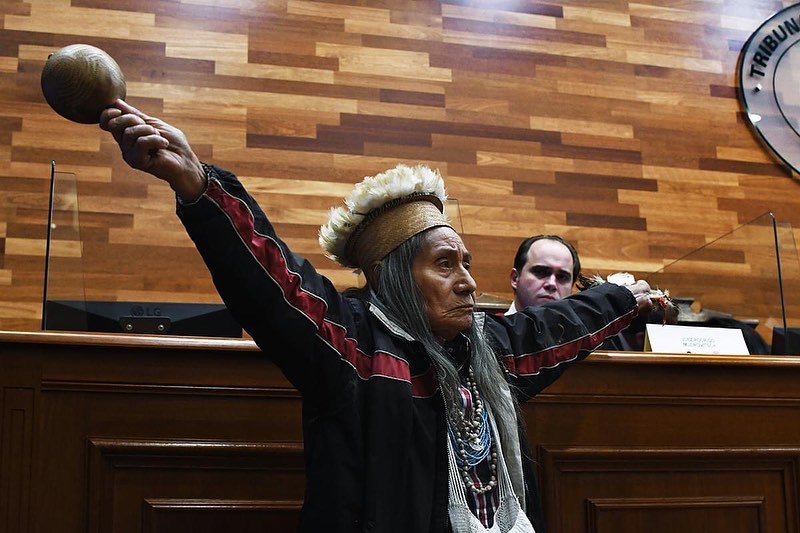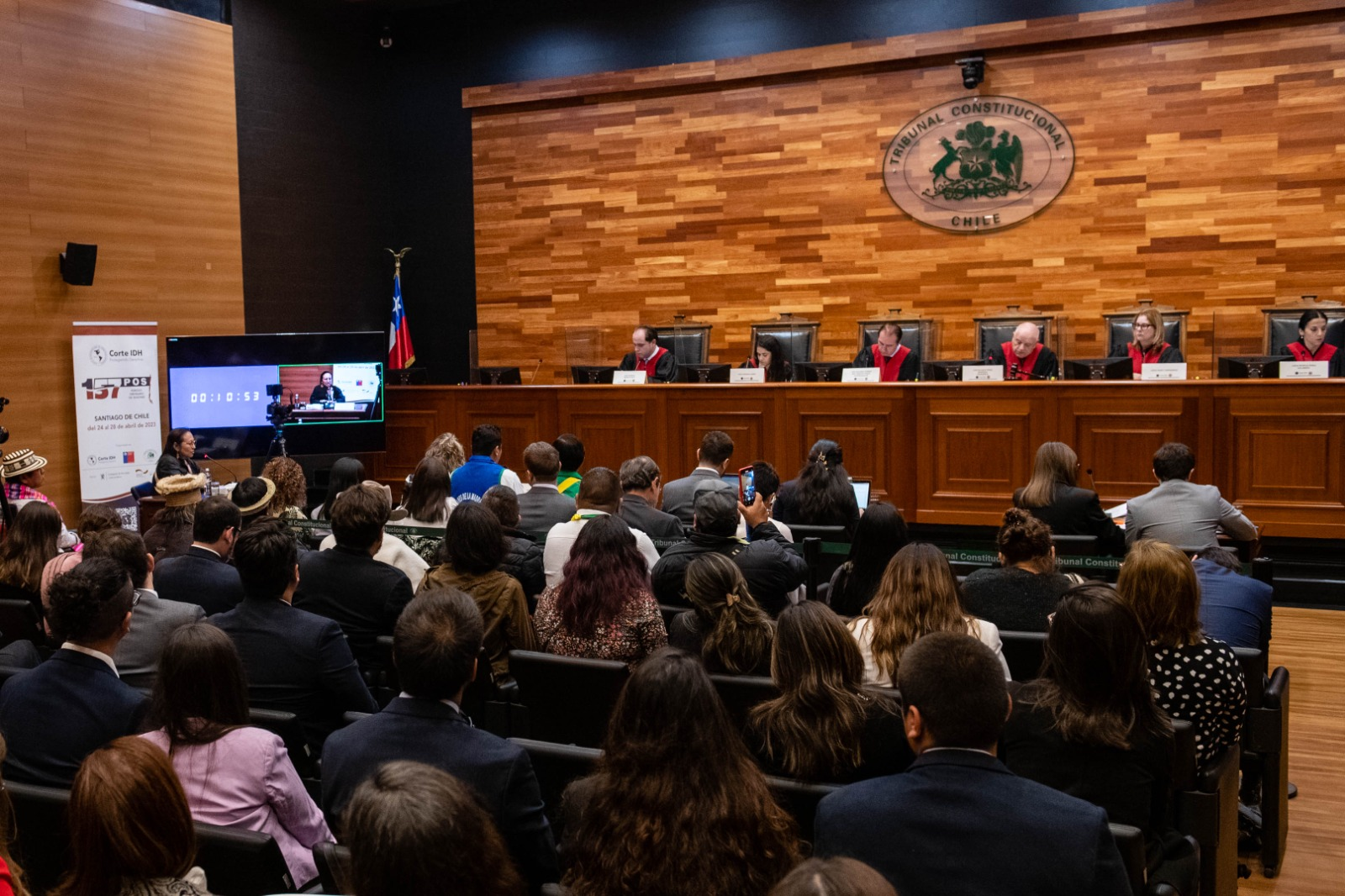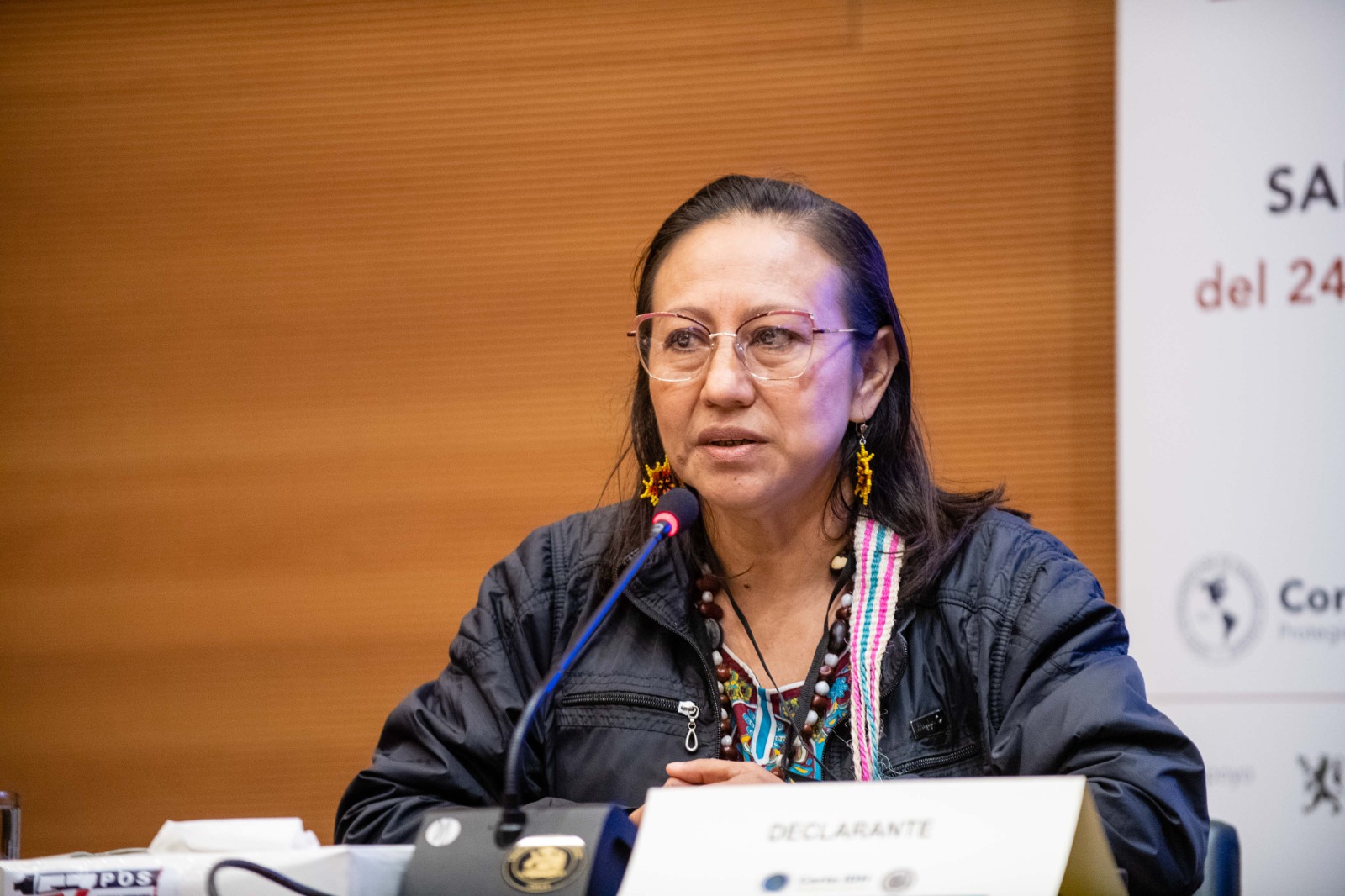Introduction
Since the early 1990s, the U’wa Indigenous people from northeastern Colombia have fought to protect their ancestral territory. They have resisted threats from tourism, oil, and mining industries that endanger their physical and cultural survival.
In December 2024, the Inter-American Court of Human Rights ruled that the Colombian State was responsible for violating the rights of an Indigenous people. This came after nearly thirty years of seeking justice.
The Court’s ruling recognized that the Colombian State systematically violated the U’wa Nation’s territorial and cultural rights by imposing extractivism projects on their land without their consent.
> Political participation
> Access to information
> Participation in cultural life
> Freedom of expression
> Children’s rights
> Freedom of assembly
> Self-determination
> Healthy environment
> Dignified life and personal integrity
> Judicial guarantees and judicial protection
Since the arrival of extractive companies in the early 1990s, the U’wa Nation has fought to protect its ancestral territory from the interests of the State and corporations such as Occidental Petroleum and Ecopetrol.
For nearly three decades, the Colombian State failed to fulfill its duty to legally recognize and protect the U’wa Nation’s territory. Instead, the State has permitted oil and gas projects, granted mining licenses, and protected private economic interests through military activity. This situation has heightened the vulnerability of the U’wa Nation, triggering violent confrontations amid the internal armed conflict, including attacks on the pipeline crossing their land, repression of peaceful protests, and stigmatization of their leaders.
Additionally, the State imposed the designation of National Natural Park El Cocuy over the area of Zizuma, an area of significant cultural, spiritual, and environmental importance for the U’wa. This promoted tourism activities that caused serious environmental and cultural impacts in this sacred area.
After exhausting all national legal remedies, the U’wa Nation brought its case before the Inter-American human rights system in 1997, seeking justice for the systematic violation of their rights.
Finally, in December 2024, after more than 25 years of struggle, the Inter-American Court of Human Rights issued a historic ruling holding the Colombian State accountable for violating the rights of the U’wa Nation.
> Association of U’wa Traditional Authorities and Councils (AsoU’wa)
> National Indigenous Organization of Colombia (ONIC)
> José Alvear Restrepo Lawyers’ Collective (CAJAR)
EarthRights International (ERI) has supported the U’wa Nation in their legal process before the Inter-American Human Rights System since 2014.
Ecopetrol is the Colombian-state-owned oil company that took over from Oxy and has proposed exploration and exploitation of the Gibraltar, Siriri, and Catleya areas. Ecopetrol is currently operating a gas plant in U’wa territory.
The Inter-American Court of Human Rights found the Colombian State responsible for various acts and omissions that violated the rights of the U’wa Nation, including:
> Failure to effectively resolve the clarification of the U’wa People’s colonial land titles.
> Failure to complete the process of legal recognition and demarcation of the Unified U’wa Reserve and the Kuitia Reserve.
> Denial of consistent participation of the U’wa Nation in the management of the Cocuy National Natural Park.
> Failure to ensure the right to prior consultation on oil and gas extractivist projects that had serious environmental and cultural impacts.
> Failure to conduct appropriate socio-environmental impact studies and implement effective mitigation measures for damages caused by pipeline explosions in Caño Limón.
> Failure to guarantee the rights to freedom of expression, assembly, self-determination, and the rights of children by repressing the U’wa Nation’s right to peaceful protest in a disproportionate manner.
> The violations of the rights to collective property, freedom of expression, political participation, cultural life, and a healthy environment affected the U’wa Nation’s quality of life, violating their right to a dignified life and personal integrity.
Reparations Ordered by the Court
> Take and complete all necessary actions for the full legal recognition and demarcation of the Unified U’wa Reserve and the Kuitia Reserve.
> Clarify colonial land titles to provide legal assurances to the U’wa Nation regarding their territory.
> Guarantee the U’wa Nation’s participation in the management and conservation of the overlapping area of the Cocuy National Natural Park (Zizuma), in accordance with their cosmovision.
> Identify, together with the U’wa Nation, the impacts of current extractivist projects in the reserve and adjacent areas, and implement effective measures to mitigate or eliminate associated harms. Guarantee the U’wa’s right to participate in cultural life.
> Adopt measures to mitigate the environmental damage caused by the Caño Limón pipeline.
Publicize the Court ruling and make it known in all U’wa communities within six months of the ruling’s notification on December 20, 2024.
> Carry out a public act of international acknowledgment of responsibility for the events related to the case, within one year of the ruling.
> Resolve all outstanding judicial remedies filed by the U’wa Nation.
> Create a community development fund aimed at restoring Indigenous culture, with its objectives defined by the U’wa Nation.
Official summary of the judgment issued by the Inter-American Court of Human Rights
General information on the case of the U’wa Indigenous People and their members v. Colombia
Report – Inter-American Court on Human Rights
Justice for the U’wa Nation
TIMELINE
BROADCAST OF THE HEARING BEFORE THE INTER-AMERICAN COURT (APRIL 2023)









